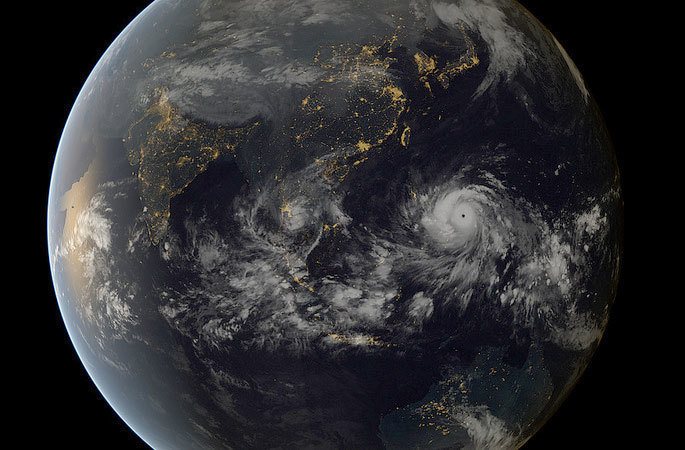A single death is a tragedy; a million deaths is a statistic.
~ Joseph Stalin
Interesting quote from a man who was best known for his "purging" of all non-Russian's back in the 1930's. But like anybody, anywhere we can still learn something from them.
In November 2013, Typhoon Haiyan, one of the largest storms in recorded history decimated the Philippines coastline. Below is a picture of this monster from space. Wow.

- Over 600,000 people were displaced (as in, they once had a home and are now homeless for the foreseeable future),
- Over 6,000 people died and over 1000 are still missing
- At least 9.5 million people have been affected.
Those are some significant disaster statistics but like the US national deficit (17 TRILLION and counting), they often do little to spur profound emotion or meaningful action.
Even when disasters like this befall folks in our own time zone, the 'social distancing' by many of us is alive and well. After all, it's just a number right? Such is the fate of score-keeping during a disaster.
Of course I realize that metrics of many kinds are crucially important. For budgeting and reimbursements, for accountability and for tactical decision-making.
For instance if we know that 100 people can be saved in building A and 200 people can be saved in building B ... we're headed to building B first.
A simple but sometimes consequential choice (for the 100 that didn't get rescued) of being guided by the mantra: "Do the most good for the most people as fast and as safely as possible."
"Do the most good for the most people as fast and as safely as possible." ~Mike McKenna/@TEAM_Solutions
In 2005 I spent 27 days in New Orleans with my USAR Task Force before, during and after Hurricane Katrina performing searches, rescues and evacuations of residents that survived the storm.
People - survivors and deceased - were everywhere.
One of the coping mechanisms in instances like this is to disassociate from the despair and let your training take over, a favored and reliable plan for most of us.
The downside however is that it is easy to start score-keeping as a replacement for making sensible and informed humanitarian decisions at the individual level. "10 evacuees there...", "4 DOA's there..." etc.
One of the lingering memories that helps me stay balanced between doing the most good for the most people and making informed humanitarian choices at the individual level is due to a little girl named Stephanie.
Out of respect to her and her family I won't post her picture but suffice to say I could probably sketch it by memory if I had to. She was 4 years old, had lost her parents somewhere during the storm and was terrified. Stephanie and her grandparents were rescued by my team from their flooded home. While waiting for the next helicopter to usher her family off to who-knows-where, we learned that Stephanie's aunt and uncle were still in their flooded home due to space considerations on the rescue boat. With darkness - and our curfew for being on the water - quickly approaching, we quickly sent a boat crew to find the aunt and uncle so they could be reunited with Stephanie before they were put in separate chutes of the long pipeline of recovery that may land them all in separate shelters at different ends of the country, without identification. A few of us got in a little trouble for keeping our boats out past our curfew and for not putting Stephanie on the first helicopter we could, but it was the right thing to do. In a defining moment of clarity, we knew we had successfully walked that careful edge of staying focused on the big picture while not being blind to the little picture. Wherever Stephanie is today, I hope she know how she helped us as much as we helped her.
The 6,000+ dead in the Philippines? Like Stephanie, those are real people with real stories.
From Reuters:
One woman, eight months pregnant, described through tears how her 11 family members had vanished, including two daughters. "I can't think right now," she said. "I am overwhelmed."
And there are thousands of other stories just like that too.
The story of Typhoon Haiyan was relevant for a few weeks and then was quickly replaced with stories about some starlet's DWI, holiday shopping deals and the college football rankings. But the individuals that make up the "millions of people affected" will be forever changed ... just as we would be changed if the roles were reversed.
So keep score when you must, it can make things understandable, clinical and efficient. Just don't let the score blind you from the very personal impact that is felt behind those big numbers.
And the US national debt? YOUR share is $69,060 and growing. How's that for personalizing the problem?
Improve your Leadership Skills
Free, 4-day email course
"4 Things Successful Leaders Know & Do During a Crisis"
